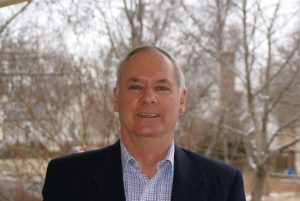LCA Family Conference: IRD Milestones
Sofia Sees Hope is holding its first LCA Family Conference on Saturday in Groton, CT. This event is the culmination of our first five years of work and fulfills our mission to connect LCA patients and families
to researchers, industry experts and others who are keenly interested in LCA and and rare inherited retinal diseases.
The goal of this conference is to provide updates about advances in research, deepen understanding of the roles various organizations play in developing treatments, and provide insight into how an active patient community can support and accelerate treatment.
We are pleased to welcome Dr. Brian Mansfield, Senior Vice President of Research with Foundation
Fighting Blindness, who will speak on “IRD Milestones: Reasons to Be Excited.”
Mansfield joined the Foundation Fighting Blindness a little more than seven years ago and, while he was excited about his new job, he lamented the absence of therapies for genetic eye diseases.
For years, affected people were told: “Go home and learn Braille; there’s nothing we can do for you,” he recalled. But the foundation was committed to changing that message.
A mere seven years later, the treatment landscape for inherited retinal diseases (IRDs) has changed dramatically, with multiple clinical trials offering patients hope and improved vision. When FFB started 47 years ago in 1971, researchers were just at the very start of understanding the complexities of IRDs and had little knowledge about the genetics of the diseases.
Now, Mansfield said, more than 260 genes are involved in these diseases, and probably more. “We’re learning about the genetics of the diseases all the time.”
As Senior Vice President of Research, Mansfield implements the foundation’s scientific research strategic plan and leads scientific assessments of new technologies, treatments and therapies for retinal degenerative disease. He also leads the My Retina Tracker patient registry team and the foundation’s genetic testing study.
“The challenge for me is to see how we can try and continue this program,” he said. “It’s a very expensive program. It’s a very valuable program.”
People registering take an active role in advancing research to find treatments and cures for specific rare inherited retinal diseases, affording the opportunity to join others and “stand up and be counted.”
The foundation’s expanded testing program, helped in part by a $65,000 donation from Sofia Sees Hope, came soon after the Food and Drug Administration’s December approval of LUXTURNA™, which treats people with Leber congenital amaurosis (LCA) and a mutation of the RPE65 gene. Developed by Spark Therapeutics and decades in the making, LUXTURNA is the first genetic therapy for an inherited retinal disease and the first genetic therapy for ANY inherited disease in the United States.
“I’m optimistic about how the field has changed so dramatically, from a lack of knowledge of what causes retinal disease, to actually have a treatment. This has really been a rapidly changing and exciting time.”
Mansfield said he hopes continued successes will one day bring treatments and cures for all retinal diseases.
“We’re committed to soldiering on, to drive research, to get those solutions for everyone,” he said. “It’s a big job, but if people aren’t pushing for it, it doesn’t move.
“It takes time to get there, but it does happen. It takes lots of money and research and the role of our foundation is to make sure we can maintain that momentum.”

